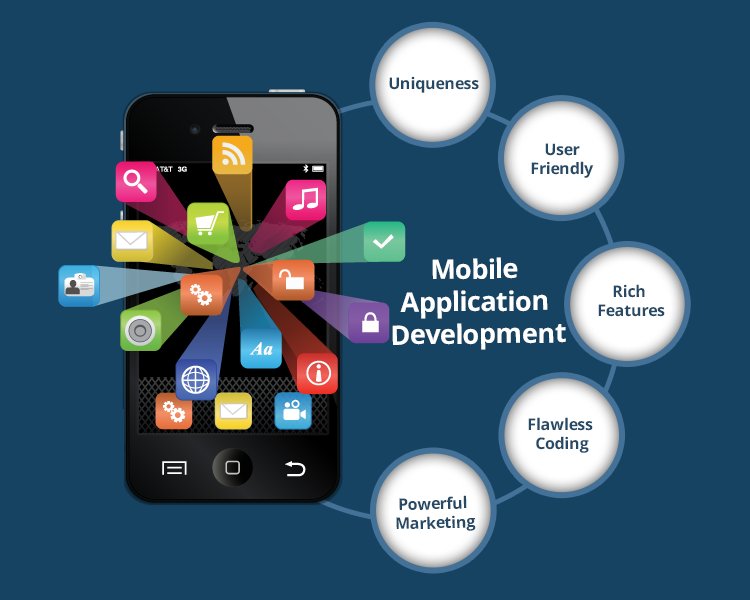
Mobile App Development
Introduction to Mobile App Development
Mobile app development involves creating software applications that run on mobile devices. It encompasses various stages, from planning and design to coding and deployment.
1. Choose a Platform
- iOS: Apps for Apple devices (iPhone, iPad) using Swift or Objective-C.
- Android: Apps for Android devices using Java or Kotlin.
- Cross-Platform: Apps that run on both iOS and Android using frameworks like Flutter, React Native, or Xamarin.
2. Learn the Basics
- Programming Languages: Learn Swift for iOS, Kotlin or Java for Android, and Dart for Flutter.
- Development Environments:
- iOS: Xcode
- Android: Android Studio
- Cross-Platform: Visual Studio Code or IntelliJ IDEA
3. Get Familiar with the Development Process
- Idea and Conceptualization: Define the app’s purpose, target audience, and key features.
- Wireframing and Prototyping: Create wireframes and prototypes to visualize the app’s structure and user interface.
- Design: Focus on UI/UX design to ensure a user-friendly experience.
- Development: Write the code for the app, integrating design and functionality.
- Testing: Test the app for bugs and usability issues.
- Deployment: Publish the app on app stores (App Store for iOS and Google Play for Android).
4. Learn Core Concepts
- UI/UX Design Principles: Understand design principles to create intuitive and attractive interfaces.
- APIs and Backend Services: Learn how to connect your app to backend services and APIs for data storage and retrieval.
- Data Handling: Understand how to manage data, including local storage and cloud databases.
- State Management: Learn how to manage the app’s state, particularly for complex applications.
- Performance Optimization: Techniques to optimize app performance and ensure smooth operation.
5. Utilize Development Tools and Resources
- Integrated Development Environments (IDEs): Xcode, Android Studio, Visual Studio Code.
- Version Control Systems: Git and GitHub for code management and collaboration.
- Online Resources: Tutorials, documentation, forums, and online courses.
- Libraries and Frameworks: Utilize libraries and frameworks to speed up development.
6. Build Projects
- Start with simple projects to apply your knowledge.
- Gradually move to more complex projects to tackle advanced concepts.
- Consider participating in hackathons or contributing to open-source projects.
7. Continuous Learning and Improvement
- Stay updated with the latest trends and updates in mobile development.
- Follow blogs, attend webinars, and join developer communities.
- Practice regularly and seek feedback to improve your skills.
Resources for Learning Mobile App Development
- Online Courses: Coursera, Udemy, edX, Pluralsight
- Official Documentation: Apple’s Developer Documentation, Android Developers, Flutter Documentation
- Books:
- iOS Programming: The Big Nerd Ranch Guide
- Android Programming: The Big Nerd Ranch Guide
- Flutter for Beginners
- YouTube Channels: CodeWithChris (iOS), The Net Ninja (Flutter), Android Developers (official channel)
By following this guide, you’ll be well on your way to becoming proficient in mobile app development.
Visit site- https://www.ntitechacademy.com